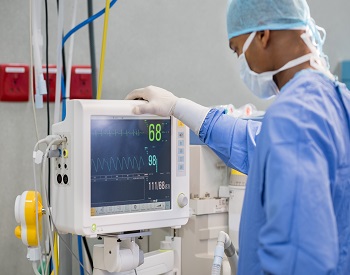What is BSc Cardiology?
BSc Cardiology is a 3-4 year undergraduate program that equips students with the knowledge and skills required to assist in the diagnosis, treatment, and prevention of cardiovascular diseases. The curriculum covers various aspects of cardiology, including anatomy, physiology, pathology, pharmacology, and diagnostic techniques. Graduates of this program are known as Cardiovascular Technologists and play a crucial role in supporting cardiologists and other healthcare professionals.
BSc Cardiology Course Details:–
- Duration: 3-4 years
- Degree awarded: Bachelor of Science (BSc)
- Eligibility: 10+2 with Physics, Chemistry, and Biology as core subjects
- Admission process: Merit-based or entrance exams like NEET
- Course fee: Varies depending on the college and location
- Career options: Cardiovascular Technologist, Cardiac Care Technician, Medical Sonographer, Dialysis Technician, etc.
BSc Cardiology Salary in India:–
The average salary for a Cardiovascular Technologist in India ranges from Rs. 4.0 lakhs to Rs. 20.0 lakhs per annum. The salary depends on various factors like experience, skillset, location, and the type of employer. With experience and specialization, graduates can earn significantly higher salaries.
BSc Cardiology Subjects:-
The curriculum for BSc Cardiology typically includes the following subjects:
- Anatomy and Physiology: This covers the structure and function of the human heart and cardiovascular system.
- Pathology: This deals with the causes, development, and diagnosis of cardiovascular diseases.
- Pharmacology: This focuses on the use of medications in the treatment of cardiovascular diseases.
- Electrocardiography (ECG): This teaches students how to record and interpret electrical activity of the heart.
- Echocardiography: This covers the use of ultrasound to visualize the heart’s structure and function.
- Cardiopulmonary Resuscitation (CPR): This teaches students how to perform CPR in case of cardiac arrest.
- Biochemistry: This helps students understand the biochemical processes underlying cardiovascular disease.
- Biostatistics: This equips students with the skills to analyze and interpret data related to cardiovascular health.
Few Best BSc Cardiology Colleges in India:
- Lokmanya Tilak Municipal Medical College, Mumbai
- Rajiv Gandhi Paramedical Institute, Delhi
- Geetanjali University, Udaipur
- Sri Ramachandra Institute of Higher Education and Research, Chennai
- Christian Medical College, Vellore
BSc Cardiology Syllabus:–

The specific syllabus for BSc Cardiology may vary depending on the college. However, it typically covers the following areas:
- First Year: Introduction to Cardiology, Anatomy and Physiology, Biochemistry, Microbiology, Pathology,Basic Medical Sciences
- Second Year: Cardiovascular Physiology, Electrocardiography, Introduction to Echocardiography, Medical Ethics and Jurisprudence, Computer Applications in Healthcare
- Third Year: Advanced Echocardiography, Cardiac Catheterization, Cardiovascular Imaging Techniques,Pharmacology in Cardiology, Emergency Cardiac Care
- Fourth Year (Optional): Internship, Research Project, Specialization in specific areas like Cardiac Rehabilitation or Cardiovascular Nursing
BSc Cardiology Eligibility:-
To be eligible for BSc Cardiology, candidates should:
- Have passed 10+2 from a recognized board with Physics, Chemistry, and Biology as core subjects.
- Secure a minimum aggregate score (typically 50-55%) as per the college’s admission criteria.
- Qualify entrance exams like NEET (National Eligibility cum Entrance Test) in some cases.
Scope of BSc Cardiology in India:–
There is a growing demand for qualified cardiovascular technologists in India due to the rising burden of cardiovascular diseases. This program offers a promising career path with good job opportunities in various settings, including:
- Hospitals
- Cardiovascular clinics
- Diagnostic centers
- Research institutes
- Pharmaceutical companies
- Medical equipment companies
Graduates can also consider pursuing higher education in cardiology or related fields like medical imaging, cardiac rehabilitation, or clinical research.
Conclusion:
BSc Cardiology offers a rewarding career opportunity for individuals passionate about cardiovascular health. This program equips graduates with the knowledge and skills required to play a crucial role in the healthcare system and contribute to improving cardiac care in India. With its strong academic foundation and diverse career options, BSc Cardiology is an ideal choice for students seeking a fulfilling and impactful career in the medical field.
FAQs
1. What are the career options after BSc Cardiology?
Ans– Here are some of the most common career paths for BSc Cardiology graduates:
- Cardiovascular Technologist
- Cardiac Care Technician
- Medical Sonographer
- Dialysis Technician
- Perfusionist
Other Options:
- Medical Sales Representative
- Quality Management Specialist
- Public Health Specialist
- Entrepreneur
2. What are the skills required for a successful career in BSc Cardiology?
Ans– Here are some key skills required:
- Strong understanding of human anatomy and physiology, particularly the cardiovascular system.
- Proficiency in operating various diagnostic equipment like electrocardiogram (ECG) machines, echocardiography machines, and cardiac catheterization equipment.
- Knowledge of medical terminology and procedures related to cardiology.
- Ability to interpret medical images and analyze data.
- Computer literacy and proficiency in medical software.
3. Can I pursue an M.Sc. Cardiology after BSc Cardiology?
Ans– Yes, you can pursue an M.Sc. Cardiology after completing a BSc Cardiology program. However, the specific requirements and admission process will vary depending on the university or institute you choose.
4. Is BSc Cardiology a good career choice?
Ans– Ultimately, whether or not BSc Cardiology is a good career choice depends on your individual circumstances and priorities. If you are passionate about healthcare, have a strong science background, and are comfortable with the demanding nature of the field, then BSc Cardiology can be a very rewarding and fulfilling career path.
5. Which entrance exams are required for BSc Cardiology?
Ans– The specific entrance exams required for BSc Cardiology programs vary depending on the university or institute you choose. However, some common entrance exams include:
National Level:
- NEET (National Eligibility cum Entrance Test)
- AIIMS (All India Institute of Medical Sciences) MBBS Entrance Exam
- JIPMER (Jawaharlal Institute of Postgraduate Medical Education and Research) MBBS Entrance Exam
State Level:
- State-specific medical entrance exams
- University-specific entrance exams
Other entrance exams:
- SET (Symbiosis Entrance Test)
- CUET (Common University Entrance Test)
It’s important to note that the entrance exams required for BSc Cardiology may change over time, and the eligibility criteria may vary depending on the university. Therefore, it’s crucial to check the official website of your chosen universities for the latest information and specific requirements for admission.






